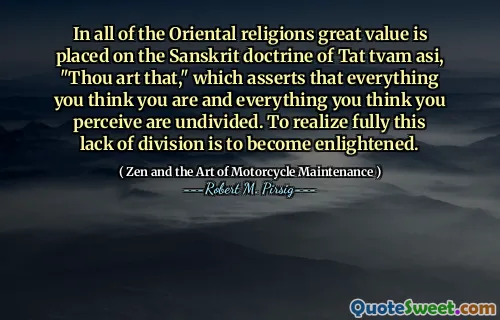
When people are fanatically dedicated to political or religious faiths or any other kinds of dogmas or goals, it's always because these dogmas or goals are in doubt.
This quote highlights a profound insight into human psychology and the nature of conviction. It suggests that unwavering adherence to beliefs—be they political, religious, or ideological—is often rooted in inner uncertainty or doubt. When individuals face ambiguity or lack confidence in their understanding or the validity of their beliefs, they may adopt a form of psychological certainty through fanaticism. Such fervor acts as a reassuring shield against the discomfort of not knowing, transforming open-ended questions into fixed truths that offer a sense of stability and predictability.
In the face of complex realities and conflicting information, doubt is a natural part of intellectual growth and exploration. However, when doubt is suppressed or ignored, it can give rise to dogmatic beliefs, which serve to simplify and solidify one’s worldview at the expense of openness and receptivity. This phenomenon explains why many passionate advocates cling so fiercely to their convictions—these beliefs become a form of psychological armor, protecting them from uncertainty to preserve their sense of certainty.
Furthermore, such fanaticism can hinder dialogue and understanding, fostering division rather than cohesion. Recognizing that fanaticism often masks underlying doubt can foster empathy and encourage humility in debate. It reminds us of the importance of embracing doubt as an integral part of human experience, and instead of fearing it, learning to confront and accept our uncertainties as opportunities for growth and genuine understanding.
Overall, the quote underscores the importance of self-awareness in our beliefs. The acknowledgment of our doubts can serve as a stepping stone toward more authentic, flexible, and compassionate perspectives, rather than dogmatic rigidity born from insecurity.








